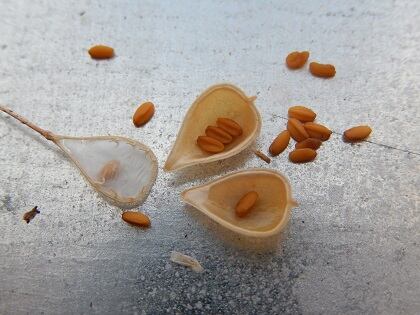The Rothamsted Research project will begin planting next month, with the first harvest due in August/September. The scientists have said the project could open up alternatives to marine-based omega-3s like eicosapentaenoic acid (EPA) and docosahexaenoic acid (DHA).
The decision follows a six-week consultation period by DEFRA where public questions were taken on by the research team at the Advisory Committee on Releases to the Environment (ACRE). The Hertfordshire project is the only GM trial in the UK.
Alternative omega-3 source
Responding to the decision, Professor Jackie Hunter, BBSRC chief executive, said: "This research is seeking to provide an alternative source of omega-3 oil for the aquaculture industry that is seeking new ways to maintain and increase its sustainability. After many years of Biotechnology and Biological Sciences Research Council supported laboratory research this project has reached the point where only a field trial will show scientists if this could work in real world conditions."

The researchers said the seeds could offer an alternate source to wild and farmed marine sources.
The group said: “Currently, over 70% of all fish oil harvested each year is consumed by the aquaculture sector and this rapidly expanding modern industry is seeking new omega-3 LC-PUFAs sources to ensure its production practices remain sustainable and nurture the essential aquatic food web.”
Earlier this year, this was echoed by a research review that suggested the omega-3 industry should look to GM sources for answers to this sustainability query.
Public funding and the GM debate
The project was supported by public funds through Rothamsted’s research programme Designing Seeds for Nutrition and Health, backed by the BBSRC, one of the UK government's research councils.
DEFRA told FoodNavigator that while the project was not the first GM trial to take place in the UK, it was the only one running at the moment, with no other applications pending.
In the last 10 years it said it had approved just five trials, three within potato farming, one for peas and another for wheat, also conducted by Rothamsted Research.
During the six-week consultation period, DEFRA received one letter. Signed by members of six organisations – GM Freeze, EcoNexus, Food & Water Europe, GM-Free Dorset, The Organic Research Centre, PC & RA Lundgren, Whole Organic Plus and GM Education and The Soil Association – it expressed concern about seed and pollen dispersal by wildlife resulting in out-crossing and cross-hybridisation, deliberately conferred traits and unintended effects, food safety and future use as well as the use of an antibiotic resistance marker gene.
DEFRA consent granted in last 10 years
Wheat:
Rothamsted Research – trial of wheat modified for resistance to aphids by producing an aphid-repellent pheromone.
Consent granted September 2011. Extended to autumn 2013.
Potatoes:
The Sainsbury Laboratory - trial of potatoes modified for resistance to potato late blight (Phytophthora infestans).
Consent granted May 2010.
The University of Leeds - trials of potatoes modified for resistance to potato cyst nematodes.
First consent granted May 2008, second consent March 2010.
BASF Plant Science - trial of potatoes modified for resistance to potato late blight (Phytophthora infestans).
Consent granted December 2006.
Peas:
John Innes Centre – trial of peas containing a drought-responsive transgene. Also herbicide tolerant.
Consent granted May 2003.
Responding to these concerns, DEFRA's decision came with conditions. Dr Matina Tsalavouta, communication officer for the project, told us that while potential cross-hybridising of species such as Capsella bursa-pastoris were widely distributed across the UK and commonly found in Hertfordshire, the ability of C. sativa and C. bursa-pastoris to form viable offspring had been very limited.
However, she said pollen dispersal would be minimised through the placing of wild-type C. sativa on the external strip of the experimental plot, serving as a pollen-trap for pollen released from the GM C. sativa and a two chain-linked fences would serve as physical barriers to impede foraging bees. She said the outer edge of the trial would have a 1.8 metre barrier of non-GM C. sativa to function as a pollen barrier as well as a 6 metre separator strip to provide additional isolation distance and machinery for sowing seeds would be thoroughly cleaned before leaving the trial area.
Finally harvested seeds and plant material from the trial would be disposed of by incineration or deep burial at a local authority-approved landfill site using an approved contractor, she said.
Responding to DEFRA's final decision, the Soil Association, a UK organic farming NGO, said the project was a waste of “scarce public funds”, particularly considering there were already two non-GM omega-3-producing crops – Echium and Ahiflower – already available to farmers in the UK.
Emma Hockridge, Soil Association head of policy, said: “GM crops are making farming less fair, more risky and no more sustainable. Instead, we support practical science and innovation that addresses real needs, is genuinely sustainable and puts farmers in control of their livelihoods.”
Dr Tsalavouta said the Rothamsted Research was in “constant conversation” with its local and farming community. Adding: “There is interest and support in Rothamsted as a research organisation providing scientific evidence so that society, policy makers and farmers can make choices.”
